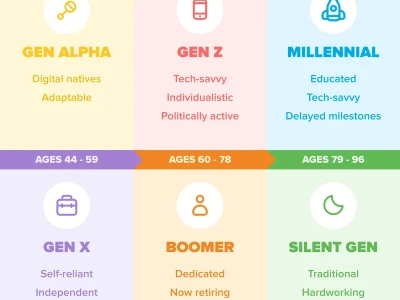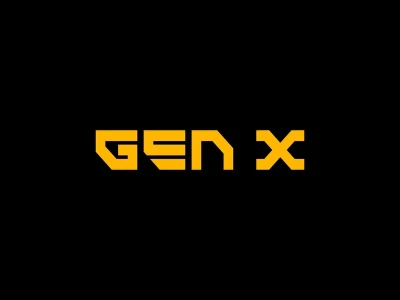Generated Title: This Isn't Just Another Rocket Launch—It's the Start of a New Space Race
You could almost feel the collective sigh of disappointment ripple across the internet on Monday. There, on the launchpad at Cape Canaveral, stood Blue Origin’s New Glenn rocket—a 322-foot titan poised to tear a hole in the sky—held captive by something as mundane as a few poorly placed clouds. A scrub. The "cumulus cloud rule," a frustrating but necessary guardian of safety, had spoken. The mission to Mars would have to wait.
But I want you to reframe that moment. Don’t see it as a delay. See it as the tightening of a bowstring. The pause before the release. Because what’s about to happen on that famous Space Coast isn’t just another launch. It’s the sound of a second, deafening starting gun firing in the race to make humanity a multi-planetary species. When I first saw the updated launch schedule, I honestly just sat back in my chair and smiled. The tension is building, and what comes next could change everything.
This isn’t just about one rocket. This is about the dawn of true competition in the cosmos.
The Second Heavyweight Enters the Ring
For years, the story of commercial deep space access has been, let's be honest, a one-man show. SpaceX and its Falcon family have been the undisputed champions, rewriting the rules of rocket reusability and opening up orbits with breathtaking regularity. But a championship with only one contender isn't a sport; it's a monopoly. What we’re about to witness with the second flight of New Glenn is the moment a second, credible heavyweight steps into the ring.
And this contender has something to prove. New Glenn’s maiden flight back in January was a qualified success—it reached orbit, a monumental achievement—but the first-stage booster was lost during its descent. Now, all eyes are on this second attempt. Can they stick the landing? The booster, poetically nicknamed "Never Tell Me the Odds," will attempt to touch down on the droneship Jacklyn hundreds of miles out in the Atlantic. Success would be a stunning validation of Blue Origin’s decade-long, patient approach.

This whole endeavor is like watching a second railroad being built to the American West in the 19th century. The first line proved it was possible, but the second one—the competitor—is what truly opened the frontier. It forced prices down, spurred innovation, and created redundancy. If one line was blocked, the other could still run. This is precisely what Blue Origin represents for our future in the solar system. It’s the critical second data point that proves the dream of affordable, reliable access to space isn’t tied to the fortunes of a single company. What happens if one company’s rockets are grounded? Right now, we wait. In a future with a thriving New Glenn program, we simply call the other provider.
When I read Blue Origin CEO Dave Limp’s comment saying, "What if we don't stick the landing? That's OK... We've got several more New Glenn boosters already in production," I felt a genuine sense of optimism. This is the language of a long-term industrial strategy, not a one-shot science experiment. It’s the kind of thinking that builds industries and opens frontiers.
A Mission to Unravel a Planet's Ghost
Of course, a magnificent rocket is just a tool. The real magic is in where it takes us. Strapped to the top of New Glenn is NASA’s Escapade mission, a brilliant and beautifully simple pair of spacecraft named Blue and Gold. Their destination? Mars. Their purpose? To solve a ghost story.
Escapade is going to investigate why Mars is the cold, barren world we see today. We know it once had a thick atmosphere, flowing rivers, and vast lakes. So, where did it all go? The prime suspect is the solar wind—a constant stream of charged particles from the Sun—that stripped the planet of its protective blanket over billions of years. Escapade’s twin probes will orbit Mars and study its magnetosphere—which, in simpler terms, is the weak, patchy magnetic shield that’s left over from the planet’s once-powerful global magnetic field. By taking simultaneous measurements from two different points, we can get a 3D picture of how the solar wind is still siphoning away what’s left of the Martian atmosphere.
This is the kind of science that gets me out of bed in the morning—it’s not just about rocks and dust, it’s about planetary forensics, about understanding the life and death of worlds so we can better protect our own and maybe, just maybe, find a way to live on another. It asks the most profound questions: What is the precise recipe for a habitable planet? And how fragile is that recipe, really?
The fact that NASA is entrusting this critical interplanetary science mission to the second-ever flight of a new commercial rocket is a paradigm shift. It’s a vote of confidence that signals we are moving beyond government-led exploration and into an era of true public-private partnership for missions that push the very boundaries of our knowledge. This is no longer just about launching satellites into low-Earth orbit; this is about sending our scientific ambassadors to other worlds on commercially built ships.
The Era of Interplanetary Competition Is Here
Let’s be clear. The launch of NG-2, whether it happens this week or next, is far more significant than its immediate outcome. A success would be transformative, proving there are two American companies capable of launching heavy payloads to other planets. But even a partial failure, like the loss of another booster, doesn't change the fundamental truth: the race is on. The competition we’ve desperately needed to accelerate our future in space is finally here. It will make access to the solar system cheaper, more reliable, and more resilient. It’s the dawn of an industrial base for space, not just an exploratory one. So as you watch that countdown clock tick toward zero, remember you’re not just watching a rocket. You’re watching the beginning of a whole new chapter in the human story. And where do we go from here?

